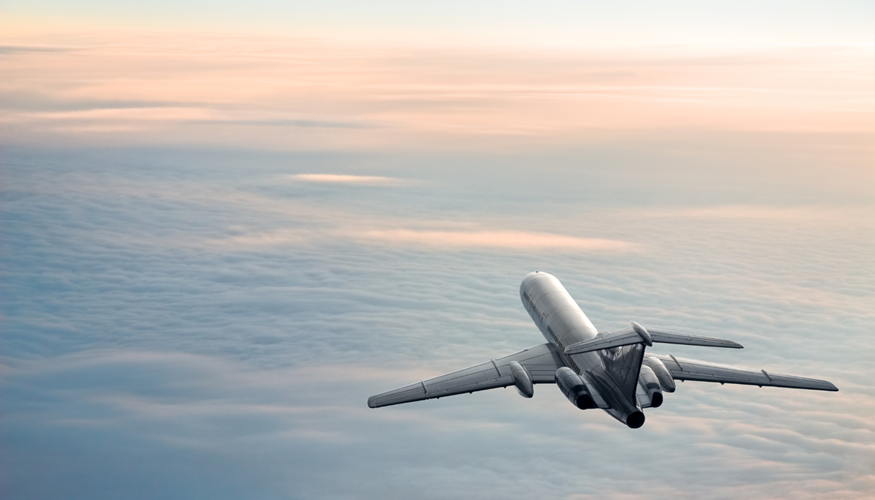Vivimos en unos tiempos convulsos, siempre digo que inexplorados, inciertos e impredecibles, aunque en estos días las noticias de la viabilidad de la llegada de la vacuna están alumbrando nuestro camino, lleno de oscuridad durante este año 2020, abriendo nuestro sector a la esperanza de la que tanto ha adolecido en los últimos meses. La industria turística ha sufrido lo inexplicable, ha perdido por encima de los 100.000 millones de euros en España, y ha llevado al ERTE, si no a ERE’s, a miles de personas ante las que corresponde mostrar nuestra total solidaridad y apoyo.
Las agencias de viaje, según los últimos estudios realizados, disminuirán su presencia desde los 9.500 puntos de venta hasta aproximadamente los 6.000 cuando acabe la pandemia, registrando una pérdida neta de más de un 30% de su capilaridad, una tendencia que ya se anunciaba antes del COVID y que la crisis no ha hecho sino acelerar. Aunque este hecho no es discutible, sí que va a provocar un importante seísmo en el sector, dado que los viajeros no van a dejar de viajar y probablemente se produzca un efecto rebote de los viajes en los próximos meses.
Al fin y al cabo, el modelo de las agencias de viaje con altos costes y estrechos márgenes, y por tanto rentabilidades exiguas, tenía los días contados. La crisis va a regalar una oportunidad a las agencias de viaje para transformarse y adaptarse a unos nuevos tiempos, los consumidores se comportarán de forma diferente, con nuevos patrones de consumo donde primará la personalización de los servicios, el uso de la tecnología, y el asesoramiento de las personas.
Algunas agencias de viaje y algunos agentes de viaje que hemos entrevistado recientemente piensan y esperan que “todo vuelva a ser como antes”, pero nada más lejos de la realidad, de hecho nada volverá a ser como antes, no llegará la “antigua
normalidad”, sino que mutaremos a una “futura normalidad”. Las agencias deberán transformar sus tiendas, migrando hacia espacios más grandes, accesibles y cómodos, donde los clientes solicitarán ayuda y consejos a través de visitas con cita previa, el entorno será digital y tanto los clientes como los agentes se apoyarán en la tecnología para acceder a información y contenidos de calidad:
Habrá elementos digitales que puedan recrear los viajes como la realidad aumentada, con procesos de información y compra totalmente integrados y con procedimientos contactless como la situación requiere y como será fundamental en un futuro
completamente dominado por la tecnología, pero donde las personas serán imprescindibles para añadir valor para generar una experiencia sublime. Según el Barómetro Turístico BRAINTRUST, los españoles tienen ganas de viajar, y si las restricciones se levantan con la llegada de la vacuna, los viajes nacionales bajarían del 82% en 2020 al 66% en 2021, los viajes a Europa subiría de un 14% este año a un 22% el próximo año, y el tráfico de larga distancia se incrementaría de un 4% este año a un 12% en 2021, con lo cual se podría esperar un cambio de tendencia que veríamos materializarse en función de la evolución de la pandemia y su consecuente crisis económica.
Pero el turismo entendido como un fenómeno masivo puede tener los días contados, de hecho, los viajeros dicen que a raíz del COVID 19, cambiarán sus hábitos de viaje, un 53% cambiará los destinos, un 42% su tipo de viaje, un 40% su medio de transporte, y un 39% su tipo de alojamiento, se habla incluso de la llegada de un turismo regenerativo que persigue dejar el lugar mejor de lo que se lo encontró el turista, y todos los destinos, en mayor o menor medida, están promoviendo planes estratégicos buscando la sostenibilidad, apoyados y subvencionados por los gobiernos con la mirada puesta en la agenda 2030.
Y en ese camino hacia un turismo sostenible están las agencias de viaje como principales baluartes de ese objetivo. Los datos de nuestro Barómetro BRAINTRUST manifiestan que, para el 20% de viajeros que cambiarán sus hábitos tras el COVID 19, el canal de agencias de viajes presenciales subirá su cuota desde un 10% en la actualidad hasta un 29%, y las agencias on line desde un 19% hasta el 26%. A eso le llamo yo brotes verdes, pero los cuales no crecerán sin ser regados adecuadamente.
Algunas agencias de viaje y algunos agentes de viaje que hemos entrevistado recientemente piensan y esperan que “todo vuelva a ser como antes”, pero nada más lejos de la realidad, de hecho nada volverá a ser como antes, no llegará la “antigua
normalidad”, sino que mutaremos a una “futura normalidad.
Las agencias deberán transformar sus tiendas, migrando hacia espacios más grandes, accesibles y cómodos, donde los clientes solicitarán ayuda y consejos a través de visitas con cita previa, el entorno será digital y tanto los clientes como los agentes se
apoyarán en la tecnología para acceder a información y contenidos de calidad: habrá elementos digitales que puedan recrear los viajes como la realidad aumentada, con procesos de información y compra totalmente integrados y con procedimientos
contactless como la situación requiere y como será fundamental en un futuro completamente dominado por la tecnología, pero donde las personas serán imprescindibles para añadir valor para generar una experiencia sublime.
Adicionalmente el uso de los datos a través del business intelligence servirá para personalizar la propuesta de valor a cada cliente, anticipándose gracias a la inteligencia artificial a los patrones de consumo de los viajeros, sorprendiéndoles con productos nuevos, innovadores y alineados con esa nueva visión de un turismo más sostenible.
Las agencias se encaminan hacia un futuro prometedor, pero no estará exento de dificultades y con muchos deberes por hacer.
¿Quién dijo miedo?
Los agentes de viaje han demostrado hasta ahora saber salir de las crisis, aprovechar las mismas para transformarse, y ahora no será una excepción.
Nunca antes las agencias de viaje tuvieron una oportunidad de reinventarse como la que tienen ahora, y en ese cometido desde BRAINTRUST trabajamos para hacerlo realidad.
También la distribución de las mayoristas de viaje cambiará, sustituyendo las visitas presenciales poco eficientes para vendedor y agente, por reuniones telemáticas eficaces previamente planificadas, con formaciones digitales no sólo sobre
producto sino sobre habilidades de venta, gestión de redes sociales, uso de herramientas informáticas, diseño de escaparates o técnicas de venta, persuasión y cómo rebatir las objeciones del consumidor. La industria en su conjunto debe cambiar la forma de operar reinventando el modelo y emulando a otros sectores más avanzados, realizando una plena inmersión en los albores de una nueva era, donde lo digital superará a lo físico en una sociedad de nativos y nacidos digitales.
Siempre recuerdo a mi madre, Maruja, una mujer trabajadora incansable, carnicera, y adelantada a su tiempo, cuando me decía, “el cliente es el que nos paga y nos da de comer, pero no nos comprará por ser nosotros, sino porque cada día le ofrezcamos la mejor carne al mejor precio, y llegue a sus hogares el mejor alimento para sus familias. No nos queda otra que innovar y ser mejores que los demás, que no tendrán otro remedio que copiarnos”.
En esta ruta de futuro, las agencias deben abordar entonces los pasos necesarios para llegar al nuevo renacer:
1. Asegurar la supervivencia a través de ayudas al sector, vengan de donde vengan, de ministerios, comunidades o ayuntamientos, gestionando su liquidez en base a sus ingresos y sus gastos.
2. Estudiar el mercado y los cambios que se están produciendo en el consumidor, sin obviarlos, mientras atraviesan una crisis histórica.
3. Inspirar a los viajeros, adaptar e innovar sus productos y servicios a un nuevo cliente que buscará valores sostenibles en viajes que adquirirán a precios asequibles.
4. Digitalizar sus procesos, de manera que se integren y automaticen con un enfoque contactless que sea del agrado del cliente y haga subir la productividad.
5. Evolucionar su oferta, orientándola más a las experiencias y no tanto a los productos, a vivir y no a gastar.
6. Diseñar la Experiencia de Cliente que quieren ofrecer a sus usuarios en el futuro, acomodando los canales, a las necesidades de cada consumidor.
7. Asegurar la omnicanalidad completa en un mercado que se hace más digital que físico.
8. Formar a sus empleados no sólo en destinos y productos, de los que ya saben mucho, sino en habilidades de venta digital, y en herramientas para añadir valor e incrementar su cartera de clientes.
En mis últimas conferencias como coach y consultor vengo apelando a la aceptación de la realidad como única salvación para permanecer resilientes, ocupándonos de lo que sí está en nuestra mano hacer, y sin preocuparnos de aquello que no está
bajo nuestro control. En este contexto impredecible en el cual nos encontramos, no podemos cambiar la realidad externa, pero sí podemos cambiar la realidad interna.
Como defensor a ultranza de la psicología positiva, mantengo que las agencias de viaje tienen hoy en su mano prepararse para un nuevo ciclo lleno de oportunidades, sin poner excusas esperando a que vuelva el maná, nada es gratis, y tampoco lo será hacer realidad dicha oportunidad, toca ponerse manos a la obra apoyándose unos a otros en estos momentos donde parece verse la luz al final del túnel.
Como decía Heráclito, el cambio es la única constante en la vida, nada es para siempre, ni lo bueno ni lo malo. Estar preparados para cuando acabe la pandemia es clave para el sector de las agencias. Desde BRAINTRUST ayudamos en ese cometido. Es el momento de construir una industria diferente.






